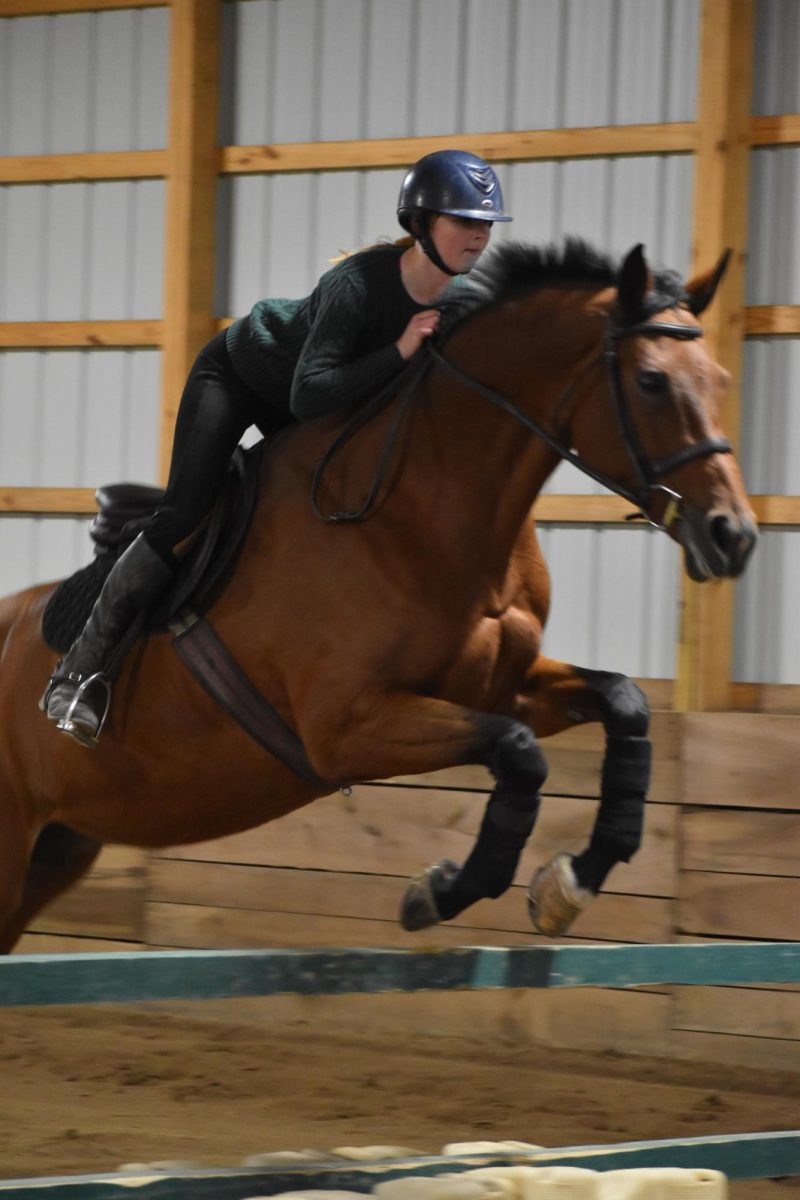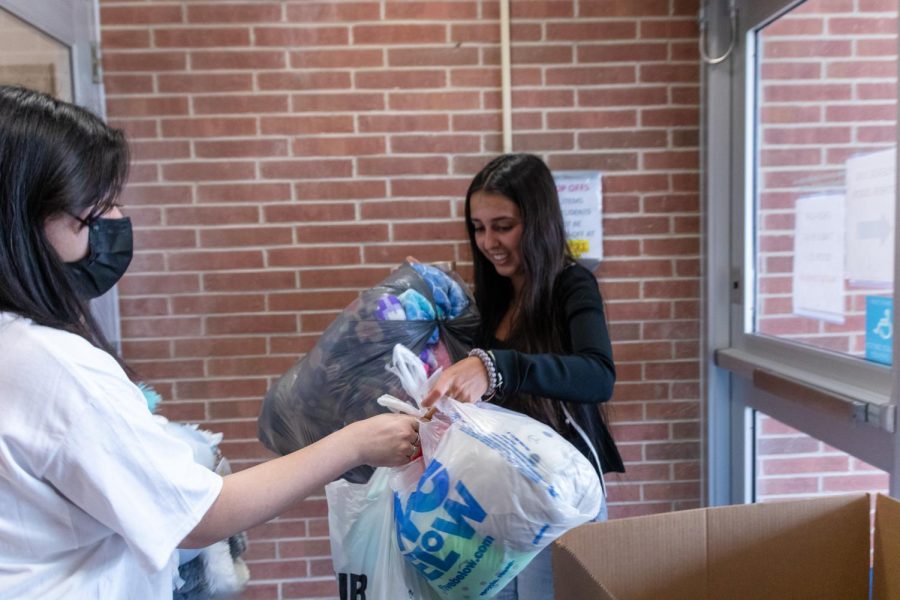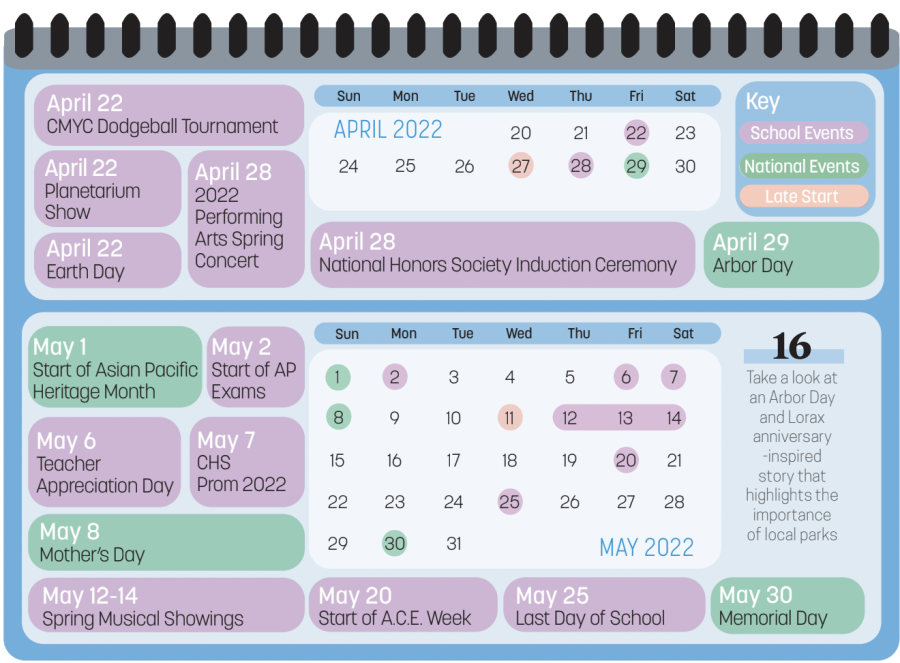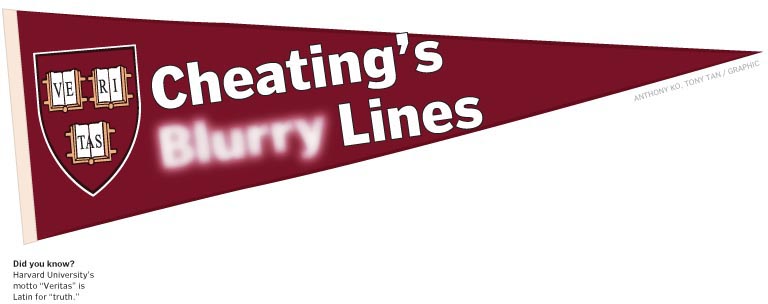It started off as a normal day last school year for now-senior Elizabeth Pekar. She woke up, got ready and boarded her bus, unaware that in just a few hours she would be unwittingly wrapped up in a cheating scandal that would threaten both her reputation and her academic standing. This event all began a few weeks earlier as a small favor to a family friend.
 “A family friend of mine, he asked me (if he could) see one of my papers I wrote last year, because he had the same teacher that I had, and he hadn’t been able to get a passing grade on any of his papers,” Pekar said. “He called me at like 9:40 one night, and my mom just wanted me to go drop it off…So I dropped it off at his house. I told him like, ‘If you’re not sure what I’m doing, or why I did what I did just ask questions,’ and he was just like ‘Thanks so much,’ and I came home and didn’t hear back from him for a couple of weeks.”
“A family friend of mine, he asked me (if he could) see one of my papers I wrote last year, because he had the same teacher that I had, and he hadn’t been able to get a passing grade on any of his papers,” Pekar said. “He called me at like 9:40 one night, and my mom just wanted me to go drop it off…So I dropped it off at his house. I told him like, ‘If you’re not sure what I’m doing, or why I did what I did just ask questions,’ and he was just like ‘Thanks so much,’ and I came home and didn’t hear back from him for a couple of weeks.”
However, on the bus that morning, he asked her a question that immediately set off an alarm bell in her head.
“He asked me like, ‘Hey, what happens when you get a 60 percent (in similarity) on turnitin.com?’ I was just like, ‘You obviously did something wrong,’” Pekar said. She went on about her day and tried to not think about what the certain looming consequences of his actions would mean for her. However, when she walked into her third period class where the other student shared the same English teacher, her fears came to fruition.
“He’s standing there talking to her and I, she pulls me aside, and she’s like, ‘We need to talk.’ She basically tells me that my paper that I had written the year before (was the same one he had turned in, with) an 80 percent similarity on turnitin.com,” Pekar said. “So she kept talking it over with us, (about) how much trouble we would be in if we were in college. He kept using the phrase ‘I thought I changed enough.’ I think he didn’t realize fully what he was doing when he decided to retype my whole paper and then just change a couple of words in it.”
As doubtful as that reaction may seem — that the student did not realize he was doing something wrong — it might be true. In fact, he certainly is not the only one to play the collaboration card when evidence of cheating surfaces.
On Aug. 30 Harvard University’s dean Jay Harris announced what is possibly the biggest cheating scandal in the school’s 376-year history. Approximately 125 students were accused of copying from one another on a take-home test last spring. According to The New York Times, many of the accused students have called foul on Harvard, claiming they were only collaborating. So, as it was a take-home exam, the university raised the question of whether the accused students were cheating or just collaborating their ideas. And more importantly, as teachers continue to offer more collaborative projects and technology becomes more prevalent, just what exactly is the line between collaboration and outright cheating, and how has this school adapted?
 The answer isn’t easy to find. According to Assistant Principal John Newton, the debate of cheating versus collaboration does provide leeway for a gray area, even with this year’s updated cheating policy (see sidebar story).
The answer isn’t easy to find. According to Assistant Principal John Newton, the debate of cheating versus collaboration does provide leeway for a gray area, even with this year’s updated cheating policy (see sidebar story).
“Where it gets to be a little bit of a gray area is if I take the test first period, and you take the test fourth period, and I give you the answers that would be difficult, wouldn’t it?” Newton said. “If I give you the answers, that could be considered cheating, (but) if I give you the questions or the kind of questions that were going to be on there, then that’s kind of a thin line. If I wrote down the answers from the test and gave it to you, then I think that would be cheating.”
Newton said he concedes that without proof of cheating either by stealing a test or sneaking a cheat sheet into the exam, it can be difficult to distinguish what is acceptable as peers sharing knowledge and what is breaking the academic dishonesty policy outlined in the Pathways guidelines.
“If they’re telling you what’s going to be on the test, just not what specific questions are going to be on the test, I think that’s collaboration,” Newton said. “I think you’re fine with that.”
While the difference between cheating and collaborating may be very slight, both Newton and Pekar agree that the majority of high school students understand what the difference is.
 “I think that the majority of us don’t even think about going there,” Pekar said. “I think (whether or not students understand the difference between cheating and collaboration) depends on the situation, like on the assignment…I guess people think it won’t happen to them. Like oh, I won’t get caught, it’s not a big deal.”
“I think that the majority of us don’t even think about going there,” Pekar said. “I think (whether or not students understand the difference between cheating and collaboration) depends on the situation, like on the assignment…I guess people think it won’t happen to them. Like oh, I won’t get caught, it’s not a big deal.”
However, Pekar said she can now testify that cheating is a big deal with big consequences. Despite these serious possible consequences, Pekar said she escaped the incident with only a warning while the other student received a zero on the paper and had to rewrite it. According to Assistant Principal Joe Schaller, who works with Newton in the student services office, cheating can especially affect students in dual-credit courses, as most universities have a zero tolerance policy for plagiarism of any sort.
Newton echoed Pekar by saying, “I think you all in high school understand what cheating is. And I think you understand what collaboration is. I think sometimes collaboration could turn into cheating. I think that could happen.”
According to Newton, much of the responsibility lies in the teachers to prevent cheating and keep the distinction between the two as clear as possible.
“It’s also up to teachers also to change up their materials and not be giving the same test year after year after year. Don’t make it so easy,” Newton said. “But I think most of the kids do (the right thing). It’s those lazy ones that can’t take care of their business, and they rely on someone else to do their work. Hopefully everybody does the right thing, and we keep this thing under control.”


































![British royalty are American celebrities [opinion]](https://hilite.org/wp-content/uploads/2024/03/Screenshot-2024-03-24-1.44.57-PM.png)



















![Chelsea Meng on her instagram-run bracelet shop [Biz Buzz]](https://hilite.org/wp-content/uploads/2024/04/IMG_2446-1200x838.jpg)
![Review: Quiet on Set: The Dark Side of Kids TV is the long awaited exposé of pedophilia within the children’s entertainment industry [MUSE]](https://hilite.org/wp-content/uploads/2024/04/unnamed.jpg)
![Review: “The Iron Claw” cannot get enough praise [MUSE]](https://hilite.org/wp-content/uploads/2024/04/unnamed.png)
![Review: “The Bear” sets an unbelievably high bar for future comedy shows [MUSE]](https://hilite.org/wp-content/uploads/2024/03/unnamed.png)
![Review: “Mysterious Lotus Casebook” is an amazing historical Chinese drama [MUSE]](https://hilite.org/wp-content/uploads/2024/03/0.webp)
![Review in Print: Maripaz Villar brings a delightfully unique style to the world of WEBTOON [MUSE]](https://hilite.org/wp-content/uploads/2023/12/maripazcover-1200x960.jpg)
![Review: “The Sword of Kaigen” is a masterpiece [MUSE]](https://hilite.org/wp-content/uploads/2023/11/Screenshot-2023-11-26-201051.png)
![Review: Gateron Oil Kings, great linear switches, okay price [MUSE]](https://hilite.org/wp-content/uploads/2023/11/Screenshot-2023-11-26-200553.png)
![Review: “A Haunting in Venice” is a significant improvement from other Agatha Christie adaptations [MUSE]](https://hilite.org/wp-content/uploads/2023/11/e7ee2938a6d422669771bce6d8088521.jpg)
![Review: A Thanksgiving story from elementary school, still just as interesting [MUSE]](https://hilite.org/wp-content/uploads/2023/11/Screenshot-2023-11-26-195514-987x1200.png)
![Review: When I Fly Towards You, cute, uplifting youth drama [MUSE]](https://hilite.org/wp-content/uploads/2023/09/When-I-Fly-Towards-You-Chinese-drama.png)
![Postcards from Muse: Hawaii Travel Diary [MUSE]](https://hilite.org/wp-content/uploads/2023/09/My-project-1-1200x1200.jpg)
![Review: Ladybug & Cat Noir: The Movie, departure from original show [MUSE]](https://hilite.org/wp-content/uploads/2023/09/Ladybug__Cat_Noir_-_The_Movie_poster.jpg)
![Review in Print: Hidden Love is the cute, uplifting drama everyone needs [MUSE]](https://hilite.org/wp-content/uploads/2023/09/hiddenlovecover-e1693597208225-1030x1200.png)
![Review in Print: Heartstopper is the heartwarming queer romance we all need [MUSE]](https://hilite.org/wp-content/uploads/2023/08/museheartstoppercover-1200x654.png)






















![Review: Ladybug & Cat Noir: The Movie, departure from original show [MUSE]](https://hilite.org/wp-content/uploads/2023/09/Ladybug__Cat_Noir_-_The_Movie_poster-221x300.jpg)

![Review: Next in Fashion season two survives changes, becomes a valuable pop culture artifact [MUSE]](https://hilite.org/wp-content/uploads/2023/03/Screen-Shot-2023-03-09-at-11.05.05-AM-300x214.png)
![Review: Is The Stormlight Archive worth it? [MUSE]](https://hilite.org/wp-content/uploads/2023/10/unnamed-1-184x300.png)




